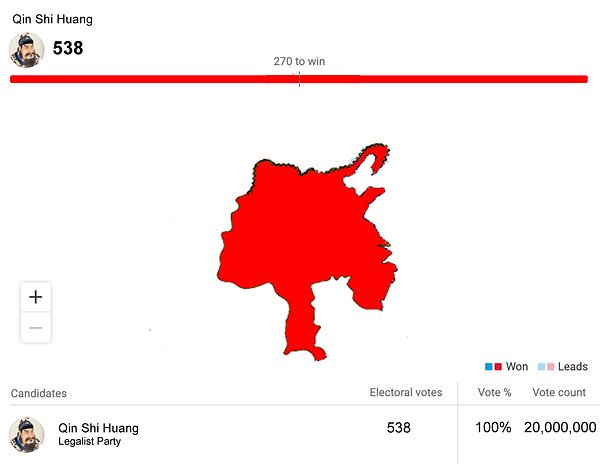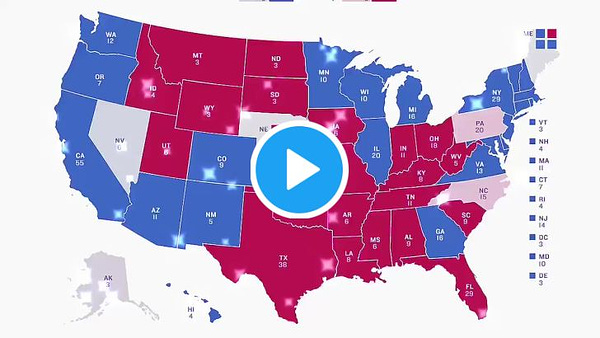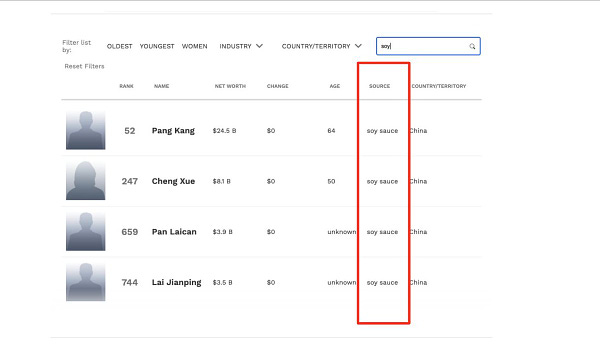How The New Congress Will Take on China + Tweets of the Week
Expect tens of billions for R&D and reshoring, movement on HK and Xinjiang, and fights over how best to allocate between basic vs applied research
I’m recording two shows this week! This first is with China WWII historian Rana Mitter on his new book on WWII and historical memory. The second features David F. Gordon, Condoleezza Rice’s Director of Policy Planning and for my money one of the smartest people out there on the interaction of economics and global politics. We’ll be talking about the world post-Trump. Respond to this email if you have any questions you’d like me to ask, though be advised I’ll be more likely to ask them if you…
Also, I’m looking for help modeling out the economic impact of broad-based controls on Xinjiang forced labor imports within China and in the US. If you know where I could find someone interested in helping on this, or have any methodological advice, please just respond to this email.
The following piece I co-authored with fellow CNAS researcher Coby Goldberg and published in Foreign Policy. We conducted these interviews before the election.
Only one issue will likely bring together a Democratic-led House and an odds-on Republican-controlled Senate: China.
The two parties might be divided on almost everything else, but their legislative agendas for China have a lot in common. Both propose increasing support for research and development and securing vulnerable U.S. supply chains. Neither is shy about challenging Chinese actions in Xinjiang and Hong Kong. China will be one of the very few areas likely to see real legislative movement.
Science and technology research is one of the most promising areas for bipartisan cooperation. The Made in China 2025 initiative helped wake American policymakers up to China’s technology ambitions, but COVID-19 more than anything else focused lawmakers’ attention on China. Members of Congress have proposed a number of bills all aimed at preserving America’s technological edge. The bipartisan Endless Frontier Act appropriates $100 billion to establish a technology directorate within the National Science Foundation. Senate Democrats’ America LEADS Act proposes $300 billion in new federal R&D spending over the next four years. The Republican China Task Force report recommends doubling federal funding for basic research, quantum computing, and artificial intelligence (AI) initiatives. “It’s nice to see science and technology coming to the front,” said Jennifer Wickre, a senior Republican policy advisor for the House Committee on Science, Space, and Technology.
The disagreement is around how to spend this vast flow of new money.
Both parties support applied research in a few key sectors—semiconductors, telecommunications, quantum computing, and AI are all on the table. Republicans, however, prefer that the government mostly stick to basic research. “There’s a philosophical belief [among Republicans] that the role of the U.S. government is on the basic research side,” Wickre said. “China is clearly spending more money on the applied side. But we want to beat China, not to become China.” China’s flood of spending on applied research has driven Republicans to adopt a greater degree of ideological flexibility on the issue, but the core philosophical tenets remain.
Supply chain vulnerabilities similarly garner differing solutions to a shared problem diagnosis. The Republican report proposes new tax incentives to address the issue, while the Democrats’ America LEADS Act proposes increased funding for the Commerce Department. But no matter the differences in method, the COVID-19 pandemic brought home a shared sense of importance in tackling the problem. “Once people faced the reality where we literally couldn’t get staples for our daily life, that changed people’s thinking,” said Brendan Shields, the Republican staff director for the House Foreign Affairs Committee and one of the leaders of the China Task Force. “They suddenly realized: There are these various swords of Damocles hanging over us.”
The willingness to fund such legislation, of course, might change in the Biden administration. With a Democrat in the White House, the Republican Party is liable to “rediscover its concern over debt and deficits,” Ted Cruz admitted to Axios’s Jonathan Swan in a recent interview. Such a philosophical shift would end hopes for massive outlays on R&D or supply chain resilience.
“Will the GOP stay committed to spending money on this?” a Senate Democratic aide asked. “If they lose the presidency, they could find their true religion again on balanced budgets.”
Space for bipartisan legislative action does not end with R&D and supply chains. Members of both parties support passing more concrete measures to deal with human rights crises in Hong Kong and Xinjiang. The America LEADS Act authorizes a special visa program for Uighurs and victims of political persecution in Hong Kong, and Republican Sen. Ben Sasse introduced similar legislation of his own in late May. Congressional Republicans have also voiced support for reasserting U.S. engagement with international organizations, long a key pillar of the Democratic Party’s foreign-policy agenda. “At U.N. headquarters, four of the specialized agencies are led by Chinese nationals, while France, the U.K. and the U.S. combined direct the same number,” Shields said. “Not everyone in the [Republican] Party would say, ‘Yes, let’s get more involved in the U.N. system.’ But we see these hundreds of challenges there, and if we don’t get involved, we could lose our leadership in these international organizations.”
While the Senate has demonstrated remarkable bipartisanship on human rights and semiconductors, among other things, work in the House across the aisle all but stopped in 2020. The China Task Force, which was initially a bipartisan effort, fell victim to partisanship over COVID-19, with House leadership reluctant to let Trump off the hook on his coronavirus response once he started to blame China.
Last week’s election and the possibility of at least two more years of bitterly divided government likely won’t do much to alter the Chinese Communist Party’s perception that America is in decline. But while partisanship will continue to take its toll on U.S. politics, Americans’ worries about China could be enough to push through a rare bipartisan initiative. Otherwise, Congress will be ceding the battlefield to China without a fight.
China Twitter Tweets of the Week

Longtime ChinaTalk fans know I have an occasional feature segment ‘Chinese Landscape Painters of the Week’…

If I may add more easy executive action stuff: reinstating Fulbrights to China, clarity on H1Bs, loosening Trump-era restrictions on asylum seekers from Xinjiang/HK…




Another absolutely random fact: Arnon Mishkin is my uncle!


Highly recommend getting friends or family stuck in the vortex of WeChat misinformation a subscription to Initium Media, for my money the best independent Chinese-language news outlet. It also has an easy Simplified-Traditional toggle!

IMO high-level content on BiliBili, so long as you’re not looking for sensitive subjects, is more impressive than what you can find on, say, finance or the arts on YouTube.




A thread.
Ex:


Please consider supporting ChinaTalk!
















